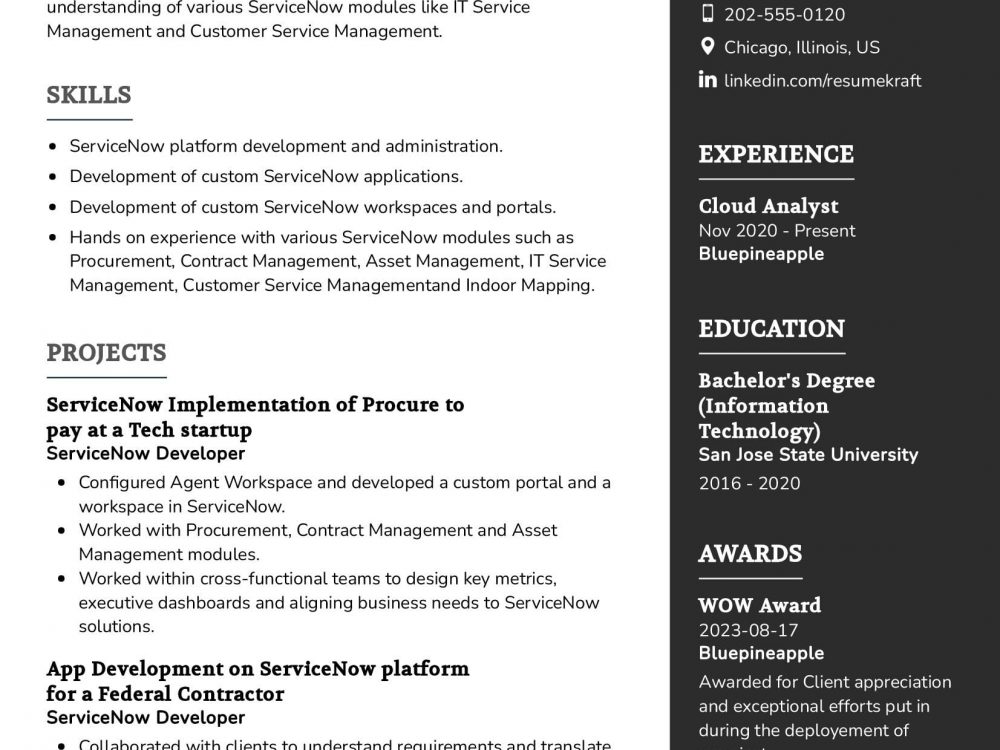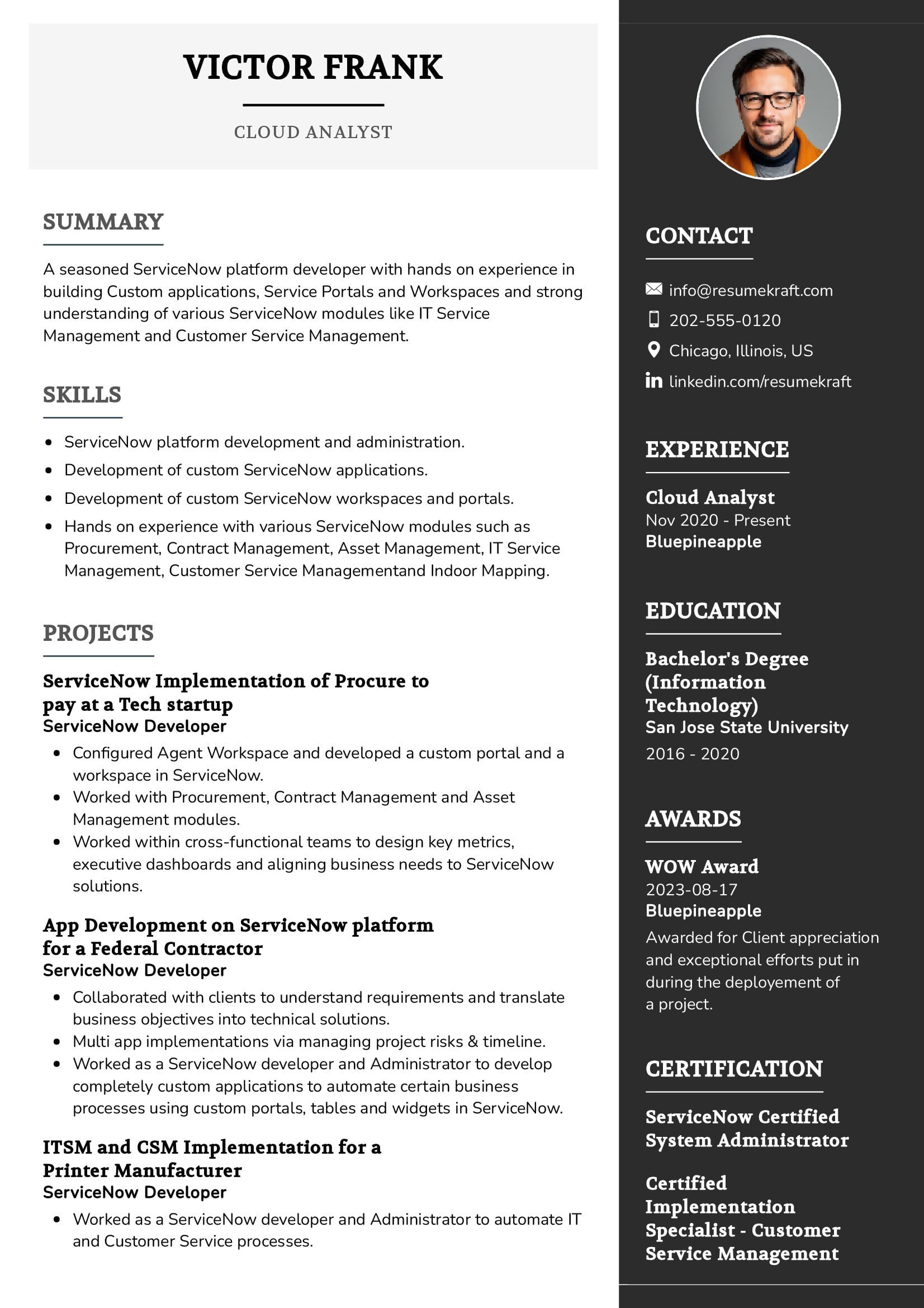The Role of a Cloud Analyst
In today’s rapidly evolving technological landscape, the role of a Cloud Analyst has become increasingly pivotal in organizations worldwide. This position combines technical expertise with strategic thinking, helping organizations leverage cloud technologies effectively. In this comprehensive guide, we’ll delve into the multifaceted role of a Cloud Analyst, exploring their responsibilities, job requirements, and key skills that are crucial for success in this dynamic field.
Job Requirements for a Cloud Analyst
Becoming a Cloud Analyst is an exciting and challenging journey that demands a strong foundation in both technical and soft skills. Let’s explore the prerequisites required to excel in this role:
- A Bachelor’s or Master’s degree in Computer Science, Information Technology, or a related field, showcasing a solid technical background.
- Proficiency in cloud computing platforms such as Amazon Web Services (AWS), Microsoft Azure, or Google Cloud Platform (GCP).
- Strong analytical and problem-solving skills, essential for assessing complex cloud environments and optimizing them.
- Experience in cloud migration projects, demonstrating the ability to seamlessly transition on-premises systems to the cloud.
- Excellent communication skills to collaborate with cross-functional teams and convey technical information to non-technical stakeholders.
- Knowledge of cloud security best practices to ensure data protection and compliance with industry regulations.
Obtaining relevant certifications in cloud technologies, such as AWS Certified Solutions Architect or Microsoft Certified: Azure Administrator, can significantly enhance your profile in the competitive job market.
Responsibilities of a Cloud Analyst
The role of a Cloud Analyst is diverse and dynamic, involving a blend of technical tasks and strategic planning. Let’s explore the core responsibilities that define this role:
- Evaluating an organization’s current IT infrastructure and identifying opportunities for cloud adoption to improve efficiency and scalability.
- Designing cloud architecture solutions that align with the organization’s business goals, ensuring optimal performance and cost-effectiveness.
- Managing and monitoring cloud environments to guarantee high availability, security, and compliance with industry standards.
- Collaborating with development teams to ensure applications are cloud-ready, optimizing performance and minimizing downtime.
- Leading cloud migration projects, overseeing the seamless transition of on-premises systems to the cloud while minimizing disruptions.
- Providing guidance on cloud cost optimization, helping organizations control cloud expenditures and maximize ROI.
- Staying updated with the latest developments in cloud technologies and advising the organization on adopting new features and services.
Each responsibility is a critical component of the Cloud Analyst’s role, contributing to the organization’s successful cloud adoption and utilization.
Writing an Effective Cloud Analyst Resume
Your resume is your ticket to showcasing your skills and experiences as a Cloud Analyst. To create a compelling resume, consider the following tips:
- Highlight your cloud-related certifications prominently, demonstrating your expertise in specific cloud platforms.
- Detail your experience with cloud migration projects, showcasing successful transitions and their impact on the organization.
- Use metrics to quantify your achievements, such as cost savings achieved through cloud optimization or reduced downtime during migrations.
- Tailor your resume for each job application, emphasizing the skills and experiences most relevant to the specific role.
Your resume is your first impression, so make it count by showcasing your unique qualifications as a Cloud Analyst.
Cloud Analyst Resume Summary Examples
Your resume summary is the gateway to your career story. Craft a powerful summary that encapsulates your experiences and strengths as a Cloud Analyst:
- “Seasoned Cloud Analyst with a proven track record of optimizing cloud environments, reducing costs by 25% while enhancing performance.”
- “Experienced Cloud Analyst specializing in AWS, with a history of leading successful migrations and implementing cost-effective solutions.”
- “Results-driven Cloud Analyst with expertise in Azure, known for designing resilient cloud architectures that drive business growth.”
Each summary is your opportunity to leave a lasting impression on potential employers.
Education for a Cloud Analyst
Your educational background serves as the foundation for your career as a Cloud Analyst. Here’s how you can list your educational achievements:
- Master of Science in Computer Science, XYZ University, 2019 – A comprehensive program that deepened my technical knowledge.
- Bachelor of Information Technology, ABC University, 2016 – The building block of my IT career.
- AWS Certified Solutions Architect – Associate, 2020 – Proof of my expertise in AWS cloud services.
Your education is the bedrock upon which your cloud career is built.
Key Skills for a Cloud Analyst
Your skill set is your toolkit for success in the role of a Cloud Analyst. Let’s break down the essential skills you should possess:
Soft Skills:
- Problem-solving abilities – Critical for identifying and addressing cloud-related challenges.
- Effective communication – Necessary for collaborating with teams and explaining complex cloud concepts to non-technical stakeholders.
- Adaptability – In a fast-paced cloud environment, the ability to adapt to changes is vital.
Hard Skills:
- Cloud platform expertise – Mastery of the specific cloud platforms used by your organization, such as AWS, Azure, or GCP.
- Cloud security knowledge – Understanding and implementing security measures to protect cloud resources and data.
- Cost optimization – The skill to manage cloud costs effectively and identify opportunities for savings.
Each skill in your toolkit contributes to your effectiveness as a Cloud Analyst.
Common Mistakes to Avoid in Your Cloud Analyst Resume
Creating an impactful resume is crucial for landing your dream job as a Cloud Analyst. Here are some common mistakes to steer clear of:
- Avoid using a generic, one-size-fits-all resume. Tailor your resume for each job application to highlight the skills and experiences most relevant to the role.
- Don’t merely list job duties; showcase your achievements and the impact you’ve had on previous organizations.
- Don’t underestimate the importance of a cover letter. Use it to tell your unique career story and connect with potential employers.
- Avoid overwhelming your resume with technical jargon that may confuse non-technical readers. Ensure your accomplishments are clear and accessible.
- Always proofread your resume to maintain a professional image and avoid embarrassing typos or errors.
Avoiding these common resume mistakes can help you stand out in a competitive job market.
Conclusion
In conclusion, a Cloud Analyst plays a pivotal role in helping organizations harness the power of cloud technologies for greater efficiency, scalability, and innovation. With the right qualifications, skills, and a well-crafted resume, you can embark on a successful career in this dynamic field.
As you take your next steps towards becoming a Cloud Analyst, remember to utilize resources like AI Resume Builder, Resume Design, Resume Samples, Resume Examples, Resume Skills, Resume Help, Resume Synonyms, and Job Responsibilities to create a standout application and prepare for the Cloud Analyst job interview. Best of luck in your cloud computing journey!


